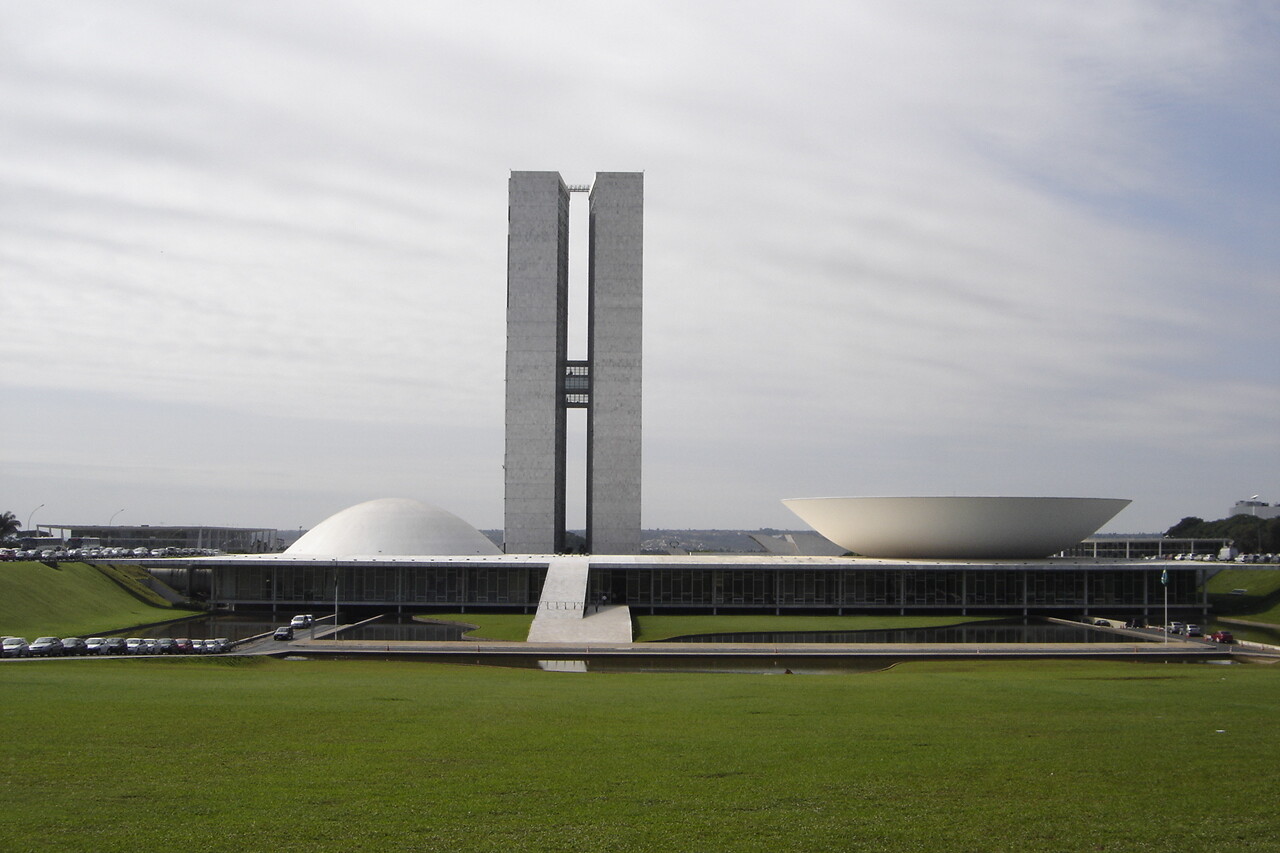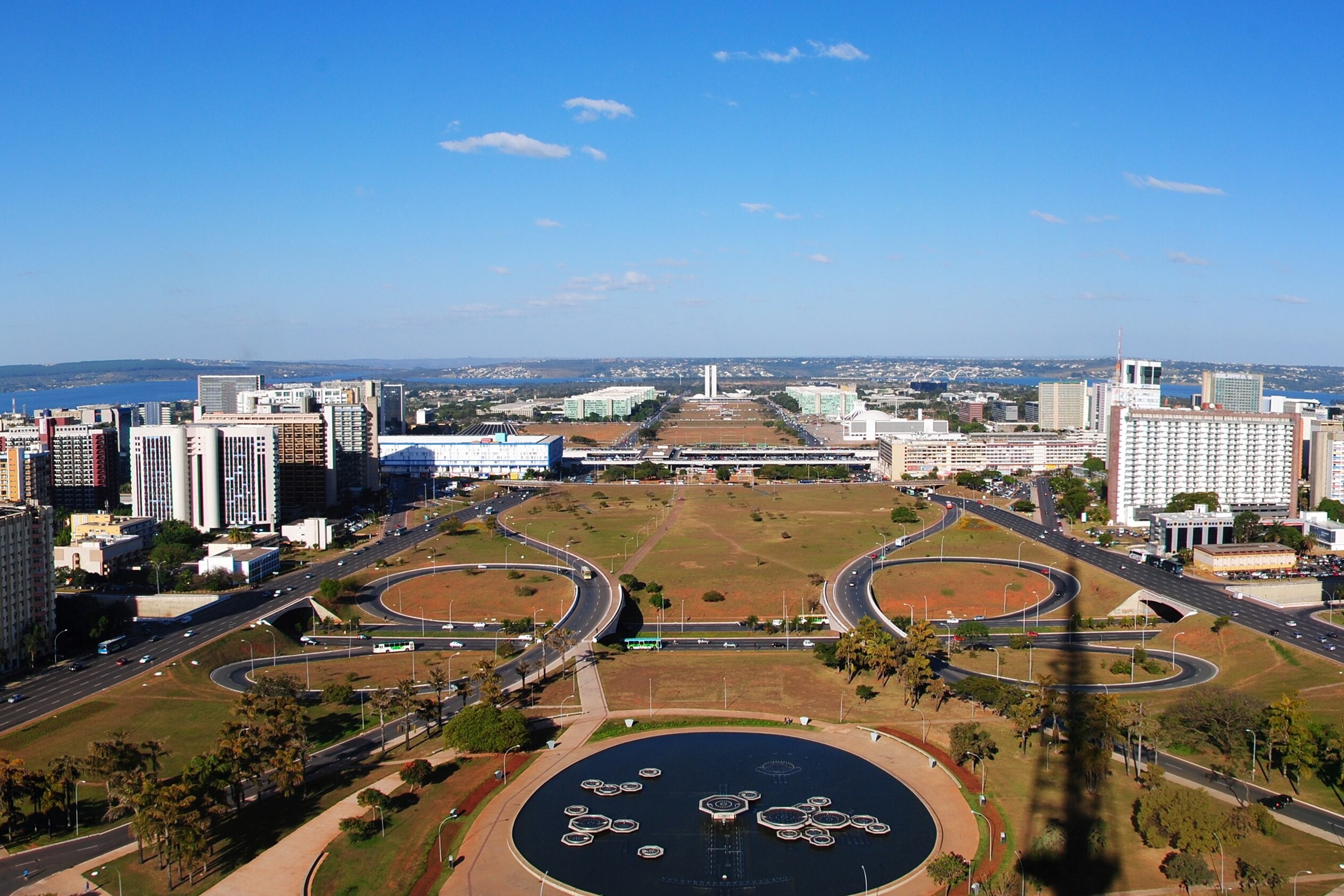By Aurora Herrera
In recent years, public media in Brazil has experienced a slow and tragic death.
In 2016, during the presidency of Michel Temer, a bid was undertaken to restructure the Empresa Brasil de Comunicação (EBC). By September 2017, the organisation had changed significantly from a public broadcaster to a more state controlled and restructured media agency. Now in 2019, under the presidency of Jair Bolsonaro, the EBC will be dismantled and over 2000 employees will be removed from the organisation and supposedly relocated to government sectors.
EBC was created in 2007 as a Brazilian public company to manage the federal government’s broadcast network. The organisation has been responsible for the content and management of TV Brasil, TV Brasil Internacional, news agency Agência Brasil, Radioagência Nacional, the EBC portal as well as eight radio stations. They also run the government’s official channel TV NBR as well as the radio programme A Voz do Brasil.
From public to state
Whilst EBC employees operated in an already challenging environment in trying to uphold the country’s democratic political environment, the atrophy of Brazilian public media was accelerated in 2016 with the issuing of provisional measure MP744.
Under this measure, then President Michel Temer removed the Board of Trustees. This change directly undermined the organisation’s autonomy and simultaneously gave the Federal government more control over the production, programming and distribution of content. At the time, EBC issued a statement saying that the measure is “an affront to the constitutional principles that establish public communication as a right of Brazilian society.”
A 2018 article by Gésio Passos, the general coordinator of the Union of Journalists of the Federal District,stated that the Federal Public Prosecutor’s Office for Citizen’s Rights considered the changes made by Temer to violate the Federal Constitution, “directly affecting [EBC’s] autonomy and independence from government and the market.”
Gésio goes on to say that if Bolsonaro effaces the EBC, “he will be disrespecting the will of the constituents of 1988. If the new President wants to respect our maximum law, he must preserve the EBC, its principles of autonomy and its purpose.”
MP744 also armed the country’s President with the power to nominate and exonerate the executive directors of EBC, leading Temer to fire then CEO, Ricardo Melo.
During a public hearing, Melo issued a statement on the actions of the President saying, “Today the President can change the chairman of the EBC whenever he wants, he can change the editorial line anytime he wants. That is [when] public broadcasting became official (state) broadcasting.”
In effect, the political act of removing the board of trustees exterminated public media in the country.
Melo affirmed that public media is necessary as an instrument to sustain democracy and its principles. He also argued that public media is essential to ensure cultural diversity within the country and that it gives every community a space and voice to express themselves. In effect, the political act of removing the board of trustees exterminated public media in the country.
Mariana Martins, researcher at the University of Brasília commented on the importance of EBC saying, “The EBC is a historic repair of the Brazilian State with public communication, pending specific policies for its strengthening since the beginning of broadcasting in Brazil. From a practical point of view, the EBC was responsible for bringing the citizen, the citizenship, to give voice and place to those who were never represented”.
Martins goes on to say that the break with the organisation’s original principles is apparent. “This can be seen with the significant increase in censorship and the culture of fear and harassment in the newsroom.”
In 2017, EBC workers organised a strike denouncing the broadcaster’s practice of censorship. Below are excerpts from an open letter issued by the employees of the station:
EBC’s management took an editorial position that limits the right to information of the Brazilian citizen.
A symbolic example took place on March 15, National Day of Paralysis…when journalists were given the order to focus their coverage on the consequences of traffic.
We have faced, on a daily and generalised basis, interference in journalistic work. The new censorship practice within EBC involves harassing journalists and broadcasters, prohibiting cameramen and image publishers from using particular images, and even involved dismissal. There have been several cases reported to the Employee Committee and the Trade Unions in recent months.
We know that all this has a main political motive, that of preventing the coverage of manifestations of society contrary to the government, thus disrespecting the very raison d’être of EBC, expressed in its creation, with the principle of autonomy in relation to the federal government to define production, programming and distribution of content in the public broadcasting system. This fact is related to the Provisional Measure (MP) of the Temer government that removed devices that guaranteed this autonomy.
In 2017, the restructuring continued, and members of the organisation realised the direct impact of a new editorial and programming committee.
“There is no more discussion about what topics are relevant, what are the important issues, how to detail the issues, how to deepen certain coverages,” said Ivan Richard, an official of the Employees’ Committee of the EBC. “What has been done, as a rule, is official journalism, which simply communicates what the government says – in this case, the Presidency and the ministries – and the allied base in the Congress. Anything that escapes this has had a lot of trouble getting worked on and published.”
In a previous PMA article Rita Freire, former President of the Board was quoted as saying to the newspaper Brasil de Fato, “What is happening to the EBC today, apart from the dismantling of several sectors, is to serve the federal government as a transmission line for their interests.”
Present day
In an interview with La Voz in May this year, President Bolsonaro issued a statement about the EBC saying, “We are going to extinguish that company and we will have to relocate the employees, the end of the company is still in our plans because, in addition, it was a campaign promise.”
Approximately 2000 employees will have to be relocated to other “public service” roles. Today the EBC employs close to 1700 people who joined the company by a public selection mandated by Brazilian legislation.
Passos related that in 2018, the company carried out two Voluntary Termination Plans, where almost 300 employees left the company. There are rumours of a new termination plan to reduce the number of employees. Simultaneously, a discussion is happening in court as to whether public companies can dismiss employees without justification.
the weakening of EBC results directly in the lack of plurality and diversity in the Brazilian media
In May 2019, the company’s headquarters in the north-eastern state of Maranhão was “simply closed” and about 200 employees were assigned to other public agencies. Passos has said that there are also rumours that a similar fate awaits the headquarters in São Paulo.
“In an environment of strong political polarisation by the extreme right in the country and with a large private media concentration in small groups, the weakening of EBC results directly in the lack of plurality and diversity in the Brazilian media,” Passos said.
“The EBC has been used by the Bolsonaro government only as an official propaganda tool in a totally illegal way. Within the company today censorship of journalists prevails, with a coverage totally in favor of the Bolsonaro government. This affects the freedom of information and expression of the Brazilian people, further affecting democratic freedoms in the country.”
Undermining the media
Bolsonaro’s aggressive attitude towards the public broadcaster comes as no surprise as his rise to power was marked by a clear campaign to undermine the media industry.
According to research conducted by daily newspaper Folha de S. Paulo, Bolsonaro has made disparaging remarks about the media on no less than 149 occasions since the beginning of the year. During the month of the elections in October, they recorded 45 separate insults. The newspaper carried out an analysis of the then-candidate’s statements, scouring social media posts, interviews and public statements. Their conclusions show that Bolsonaro accused the press of falsehood 39 times and of partisanship 38 times. On 49 occasions he sought to stimulate distrust in the press.
The newspaper claims it has been the most criticised by the President-elect, followed by the Grupo Globo group. According to the research, the group was insulted 27 times.
According to an article published by the Knight Centre for Journalism in the Americas, when Bolsonaro was a presidential candidate he launched “repeated attacks on press outlets critical of his proposals and his actions, accusing everything he does not like of being false. In contrast, he chooses outlets that will support him and who are willing to ask less troublesome questions as his spokespeople. He also uses Twitter, Facebook and other social networks to communicate directly with his supporters, encouraging them to privilege the “friendly” press and not to believe in “enemy” media.”
During the lead up to Bolsonaro’s presidency, regional director of Reporters without Borders (RSF) South America, Emmanuel Colombié, also commented on the possibility of censorship by the President-elect and his supporters through measures like the withdrawal of advertising dollars from media outlets that publish or broadcast material critical of the government. Bosonaro has since threatened such actions.
“There are President-elects in many so-called democratic countries that censor the press,” Colombié said. “In Latin America we have many examples and Brazil could become a model of institutional censorship through various measures.”
Acts of verbal and physical aggression are also a major concern for members of Brazilian media. According to the Brazilian Association of Investigative Journalism (Abraji), Bolsonaro supporters are the perpetrators of most of the 153 acts of violence (72 physical and 81 digital) against journalists during the electoral year. In 2018, four journalists were killed in Brazil.
In May of this year, Bolsonaro signed a decree that “professional journalists who cover crime” are now allowed to carry firearms in public.
RSF condemned the President’s decision.
Emmanuel Colombiéissued a statement saying, “This decision sets a dangerous precedent and does nothing to resolve the security problems that many Brazilian journalists face.It is with the tools they use to communicate, not with firearms, that journalists fulfil their heavy responsibility to report the news.”
RSF cites a study done by the US-based Institute for Health Metrics and Evaluation which identifies Brazil as having more firearm deaths in 2016 than any other country in the world, including the United States, India and Mexico.
One of the key pillars of public broadcasting is autonomy from the State. The decay of the EBC and its appropriation by the state is steadfast against the principles of independence and a direct assault on the country’s democratic political environment.
The case of the EBC is a serious concern for PMA and reinforces our aim to build consensus, stand together and advocate a united global voice for public service media.
Header image: Panoramic view from TV tower in Brasilia. Credit: Leandro Neumann Ciuffo/Creative Commons
Related Posts
14th February 2017
Senate approves measure to restructure Brazil’s public broadcaster
Concern as provisional measure,…
12th October 2016
Further measures undermine public media in Brazil
The government’s decision to wipe out…
4th October 2016
Former EBC President discusses the status of public media in Brazil
With the recent changes in government,…
27th September 2016
The future remains uncertain for public service media in Brazil
The future of public media in Brazil is…


